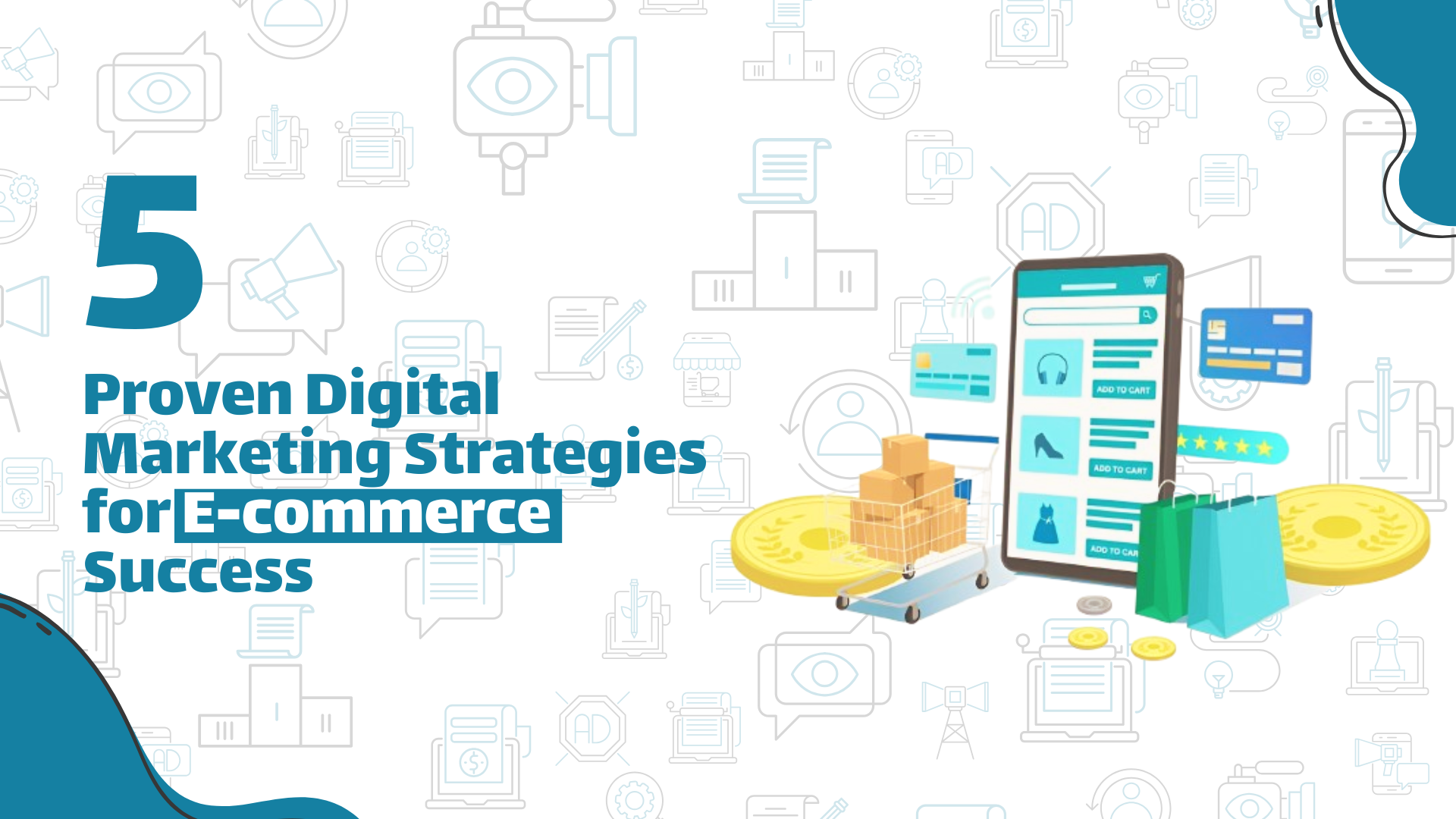The e-commerce industry is booming, with online stores becoming the go-to shopping destination for consumers worldwide. But with increasing competition, simply having an online store isn’t enough. To stand out, you need powerful Digital Marketing Strategies tailored specifically for e-commerce. In this blog, we’ll explore five proven tactics that can help your e-commerce business thrive while leveraging the power of digital marketing to grow your audience, increase sales, and foster long-term customer loyalty.
1. Search Engine Optimization (SEO) for E-Commerce Sites
When it comes to Digital Marketing Strategies, SEO should be at the top of your list. For e-commerce businesses, appearing on the first page of search engine results is crucial for driving organic traffic. Most shoppers use search engines to discover products, so optimizing your website for keywords related to your niche is essential.
Here are some quick tips for e-commerce SEO:
- Optimize Product Pages: Include high-quality product descriptions, rich keywords, and user-friendly URLs.
- Add Schema Markup: Use structured data to enhance search results with product prices, ratings, and availability.
- Focus on Mobile Optimization: Since many users shop on their smartphones, ensure your site is mobile-friendly.
SEO is a long-term strategy, but the payoff can be significant as it drives high-intent, organic traffic that is more likely to convert.
2. Leverage Pay-Per-Click (PPC) Advertising
PPC advertising is a key component of any effective digital marketing plan for e-commerce. Platforms like Google Ads and Facebook Ads allow you to target specific audiences based on demographics, interests, and online behaviors.
Why PPC Works for E-Commerce:
- Instant Results: Unlike SEO, which takes time to deliver results, PPC can drive traffic to your site immediately.
- Precise Targeting: Reach shoppers who are actively searching for products similar to yours.
- Scalability: Start with a small budget and scale up as you see results.
Pro Tip: Use retargeting ads to reconnect with visitors who have browsed your site but didn’t make a purchase. These campaigns remind potential customers of the products they were interested in, increasing the chances of conversion.
3. Content Marketing to Build Brand Authority
Content marketing is another vital Digital Marketing Strategy for e-commerce. By creating high-quality, engaging content, you can attract and retain customers while building trust in your brand.
Effective Content Marketing Ideas for E-Commerce:
- Blog Posts: Write tutorials, buying guides, or product comparisons related to your niche. For instance, if you sell fitness gear, you could create a blog post on “The Best Home Gym Equipment for Small Spaces.”
- Videos: Demonstrate how your products work or share customer testimonials.
- Social Media Content: Post engaging visuals and updates to connect with your audience.
Content marketing not only enhances your SEO but also establishes your brand as an authority in your industry. When customers trust your expertise, they are more likely to choose your store over competitors.
4. Email Marketing for Customer Retention
Email marketing remains one of the most cost-effective digital marketing strategies for e-commerce businesses. While social media and search ads attract new customers, email helps you nurture relationships with existing ones.
Tips for E-Commerce Email Campaigns:
- Personalization: Address customers by name and recommend products based on their purchase history.
- Abandoned Cart Emails: Remind customers of the items they left behind and offer a discount to encourage checkout.
- Exclusive Offers: Reward loyal customers with early access to sales or special discounts.
Email marketing helps keep your brand top-of-mind while driving repeat purchases, which is essential for long-term success.
5. Influencer Marketing to Expand Your Reach
In the modern world of digital marketing, influencer marketing has emerged as a powerful tool for e-commerce. Collaborating with influencers allows you to tap into their established audiences and boost your brand visibility.
How to Use Influencer Marketing Effectively:
- Choose the Right Influencers: Partner with influencers whose followers align with your target market. For example, if you sell skincare products, a beauty influencer would be a great fit.
- Offer Affiliate Links: Incentivize influencers to promote your products by offering them a commission on sales.
- Track ROI: Use tools to measure the success of your influencer campaigns and adjust strategies as needed.
Influencer marketing works because it feels authentic and builds trust. When customers see their favorite influencers endorsing your products, they are more likely to make a purchase.
Bonus Tip: Focus on Analytics
No matter which Digital Marketing Strategies you implement, tracking performance is essential. Use tools like Google Analytics, Facebook Insights, and email marketing dashboards to monitor your campaigns. Identify what’s working and what isn’t, and refine your approach to maximize ROI.
Conclusion
In today’s competitive e-commerce landscape, having a well-rounded approach to digital marketing is the key to success. By combining strategies like SEO, PPC, content marketing, email campaigns, and influencer collaborations, you can attract, engage, and retain customers effectively. Remember, the most successful e-commerce businesses don’t just sell products—they create memorable customer experiences through smart Digital Marketing Strategies.
Start implementing these tactics today, and watch your e-commerce store soar to new heights!



